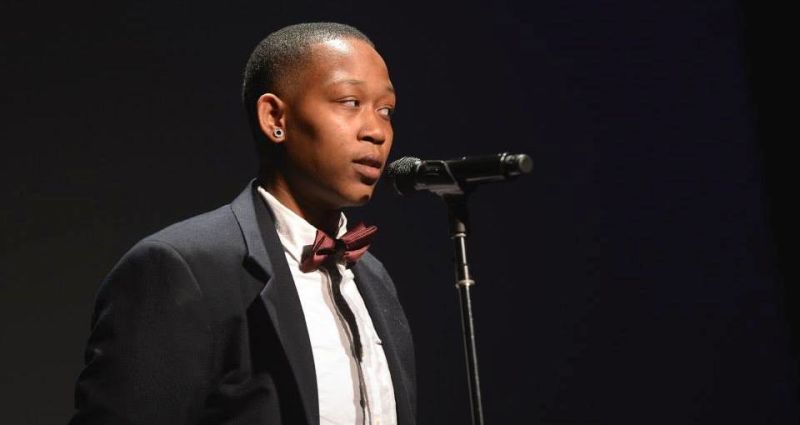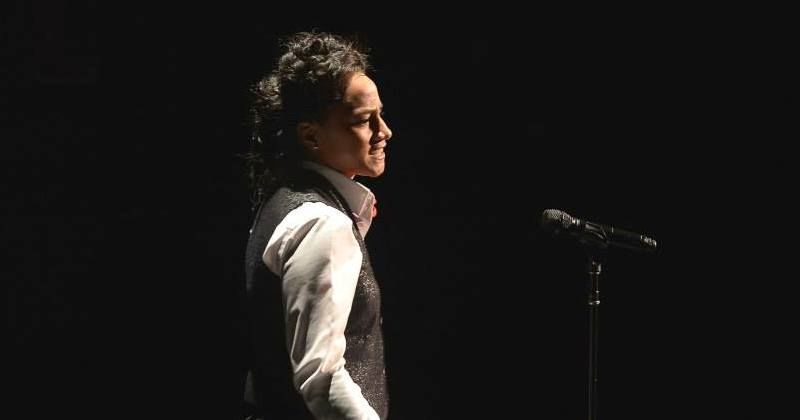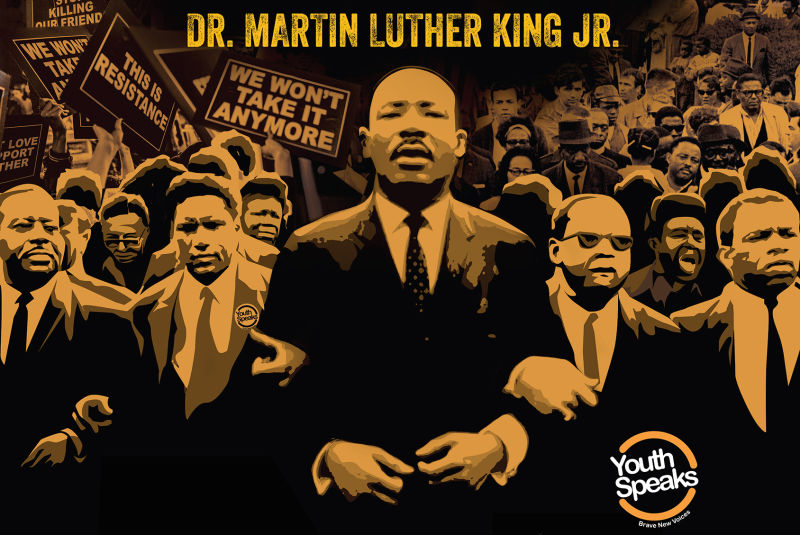Storytelling is an essential aspect of human consciousness. Without it we’d find ourselves trapped in the infinite daze of animal survival. With each new story, we evolve, often imperfectly, but sometimes with great hope.
This feeling of evolution is at the heart of Bringing the Noise for Dr. Martin Luther King Jr., a long-running annual event created in honor of King’s birthday by the Bay Area-based, national youth slam poetry organization Youth Speaks. This year’s program takes place on Monday, Jan. 18 at the Norse Auditorium in San Francisco. And though there will be the outward trappings of a party—music, dancing, and a real desire to applaud King’s work and legacy—the young people of Youth Speaks are interested in something more than homage. They are after nothing less than an accounting of the tense, fractured society around them and us. It’s the type of direct political heat you rarely feel on our professional stages, or in the dry lines of contemporary poetry.
If you go to Bringing the Noise for Dr. Martin Luther King Jr. — and you should — you won’t be lectured at. The spoken word format has synthesized a strange but potent amalgamation of theater, poetry, and essay. It’s a demanding art form. When a master of it takes the stage, such as the New York rapper and poet Saul Williams, there’s a demonic energy, both in what the artist says and in his performance of it. You feel the same spirit in the Youth Speaks kids.
They aren’t being taught to be good and obedient performers, but rather to take on the complex role of the storyteller, which requires skill, commitment, and daring. This is citizenship as art, and we need citizens capable of unleashing social and political ideals that many of us would rather just keep quiet. So the evening is aptly named because these young people are taking the noise that surrounds us everyday, catching it, and shaping it into stories.
While attending a dress rehearsal for Monday’s event, I was continually taken aback by the philosophical and emotional depth of the program. The focus of the evening comes from a 1957 Ebony magazine interview with King in which he makes a political connection between love and power: “I am convinced that love is the most durable power in the world. It is not an expression of impractical idealism, but of practical realism.”




